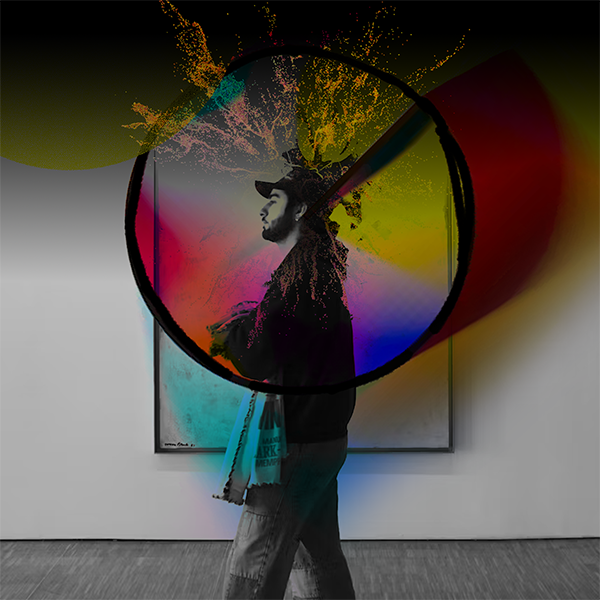In the House of Belonging: Healing Church Hurt Through Church (Part 2)
*Editorial Note: Part 1 of Katelyn’s piece, “In the House of Belonging: Healing Church Hurt Through Church,” published on Tuesday, June 4th. It can be read here. ~CK
. . .There is no house
like the house of belonging.
—David Whyte, “The House of Belonging”
Returning as Repair
A few days ago, I shared my story of returning to church again after a profound church-related betrayal that enabled the sexual sin of my former husband. Leaving church for a season was a necessary part of my healing from church hurt, but leaving was only the first step of my journey. Today, I’d like to talk about the potential gift of healing that occurs in the act of returning to church — in risking hurt for the sake of a better, truer, healthier belonging within the Christian community. Healing after rupture may begin in isolation, but it cannot end there. Eventually, we come to the realization that we need other people to help us re-weave the frayed edges of our faith into a new picture of what life lived in intimacy with God and others could be.
To rupture without repairing those frayed edges is to remain stuck in an endless cycle of raw-edged pain, wearing ourselves down by treading the same path yet never finding a new way forward. We need other people to journey with — people who help us find our way through brokenness into healing. Tragically, however, repair often cannot be found with the same party who caused the relational rupture. There are times when that person, organization, or entity is unsafe or unwilling to hear us out — or both. Sometimes repair looks like leaving that relationship and never looking back.
But to say that the only way to heal from church hurt is to leave the church forever is to deny an alternative option that is often easier to ignore than consider:
Sometimes, repair looks like return.
It looks like trying again as part of the healing journey — daring to believe that one church does not speak for all churches, and that pain and dysfunction are not the only story to tell. I am in no way advocating for one who has experienced psychological, emotional, spiritual, or sexual abuse in church to cheerfully return to the source of their trauma and “if at first you don’t succeed try, try again.” To do so would be monstrous. After all, the informal definition of insanity is to repeat the same action within the same set of circumstances, hoping that the next time will be different. Healing from such trauma is important to pursue first and foremost with God and the ongoing help of a trauma therapist. Take your time. Then, perhaps, try church again — or don’t. There is no judgment over you. You are free.
Healing after rupture may begin in isolation, but it cannot end there. Eventually, we need others to help re-weave the frayed edges of our faith into a new picture of what life lived in intimacy with God and others could be. (1/2) Share on X
Tragically, repair often cannot be found with the same party who caused the relational rupture. There are times when that person or organization is unsafe. Sometimes repair requires leaving that relationship, not looking back. (2/2) Share on X
In encouraging return as a form of repair, I am primarily speaking to those for whom church has become a bitter disappointment, an unappealing inconvenience, or an irrelevant place where the whole self has not been welcome. A large portion of my millennial friends are in this category. Church? Take it or leave it. The churches they’ve tried have either used them to the point of burnout or have not made church a safe and welcoming space for them and their families. Their experience of church tends to fall into one of two extremes: overused or overlooked. And it turns out the pandemic was the perfect opportunity for those who were growing church-wary and weary to simply opt out. Why return or remain if your two options are burnout or obscurity? This is a compelling question — one which I would be asking right along with them if I had not been thoroughly, utterly, irrevocably surprised by Church in such a way that I now cannot fathom life without my church family.
It is from them that I have learned this life-changing truth:
Church cannot heal you — but it can provide a safe and supportive context in which to heal.
Relational trauma is healed not through avoiding relationship forever, but by entering into healthy relationship and having a new experience. In my training as a psychodynamic therapist, the theory of healing embedded in me throughout my years of training is this: The warmth, safety, and trust within the therapist-client relationship is itself the repair necessary for the client to receive healing from past and present harmful relationships. It doesn’t matter how much I know or what resources I am able to offer; if I am not first able to offer the safety and stability in which to heal, the client will flounder and remain stuck in the trauma cycle. As my counseling professor used to say, “People don’t need a new idea; they need a new experience.” It doesn’t matter how much churches know about abuse or what resources for healing they are able to offer; if their environment does not promote a new experience of safety, trust, and belonging for those who have been burned, churches and their congregants will continue to flounder in cycles of pain and confusion.
Church cannot heal you — but it can provide a safe and supportive context in which to heal. Share on X
A New Experience
Five and a half years in, I remain incredulous that I married a pastor — when I had specifically told God that this was something I would never do. I had put my foot down. Growing up, I had learned from a toxically conservative youth group that the only option for women to be in ministry was to marry a pastor. And even if that feat was achieved through wholesome good looks, sparkling purity, and passable piano skills — even then, the best one could do was chair the women’s committee, which likely looked like crocheting tiny baby hats, planning some kind of retreat serving low-fat snacks, and strategizing in earnest about how we could better support our husbands. Nope. Cross my name off that list.
And yet, and yet…here I am: married to a pastor I love deeply, a contributing member of my church community, and happier than I ever thought I could be in the one context I had earnestly tried to avoid. I am living my ‘never-ever-Ninevah’ in the land of the living, and the view from here is beautiful. In re-entering the church after multiple ruptures, I have experienced the unexpected gift of repair that is only possible through having a new and safe experience of what was harmful. And I have found it in a small church that has healed many hearts with the love and belonging its congregants continually offer.
These days, repair tastes like Jerry’s backyard honey and feels like hugs from 93-year-old poetess Marie. It sounds like 37 voices singing in harmony and recognizing whose phone is going off during the sermon based on their ringtone alone. Repair smells like Lindsey’s fresh-baked sourdough communion bread and the sharp tang of grape juice. It looks like my friend Andrea who is honest about her unanswered questions, which is its own kind of faith. Repair is receiving the gift of being seen and known, like when Chris looks me in the eye and says “You, my friend, are a poet” with all the love in her heart, or the time our church elder Mary whispered, “Katelyn, you are so gifted and creative. We bless you in your work” before placing a piece of bread into my cupped hands during communion. And healing? Healing looks like the courage to hold out our hands to each other in the first place, expecting to receive, eager to give. As to how and why this particular church has been a vessel of healing for myself and others, I offer this: We belong to each other.
Healing looks like the courage to hold out our hands to each other in the first place, expecting to receive, eager to give. Why has this particular church been a vessel of healing for myself and others? Easy: We belong to each other. Share on X
The Good-Enough Church
In attachment science — which identifies our earliest relationships with caregivers as the basis upon which our relational style is formed — there is no such thing as the perfect mother or parent. All that is needed for a child to grow and thrive is a “Good-Enough Parent;” that is, an attachment figure who is present most of the time, who responds more often than notwith compassion instead of anger, and who provides a safe space of containment within the context of reliable relationship. Attachment figures fail and yell and choose their screens over playing with their children; they miss the mark. But missing the mark does not indicate a bad parent — occasional failure to love simply reveals a human parent. And the same is true with churches.
Just like parents, there is no such thing as a church that will not fail us. We cannot deny that the church has failed us, in many, many ways. It is important to acknowledge this; denial is a poor pathway to healing. If you have left the church and are considering returning, please don’t re-enter church without first tending to your heart and soul. But please don’t give up on church. We need you. We need good storytellers who dare to believe that dysfunction is not the only story worth telling. I believe and have seen how regular involvement in a good-enough church can plant and water seedbeds of new life in the garden of our souls.
So what new life might grow if we bring our good-enough selves to a good-enough church?
Healing. Connection. Authenticity. Intimacy. Joy. These fruits might just flourish.
Psychologist and spiritual director David G. Benner writes of this possible fruit in his book Surrender to Love:
“In spite of the messages of Western culture, personal fulfillment lies in connection, not autonomy. Spirituality is the discovery of the fundamental connection that exists between us and God—a connection that then properly aligns us to others, the world and our deepest self. Love is the welcome that tells us that this is where we truly belong, the assurance that we have at last found our place.”
At its worst, church has been the source of inconceivable wounding, betrayal, and perpetuation of a dangerously false picture of God. At its best, church can and should be where we learn to receive the welcome of Love — to learn our true names and find our place, safe and at home in the House of Belonging.
///
At its best, church can and should be where we learn to receive the welcome of Love — to learn our true names and find our place, safe and at home in the House of Belonging. Share on X
Footnotes
1 David Benner, Surrender to Love: Discovering the Heart of Christian Spirituality. Downers Grove, IL: Intervarsity Press (2015), 17.



